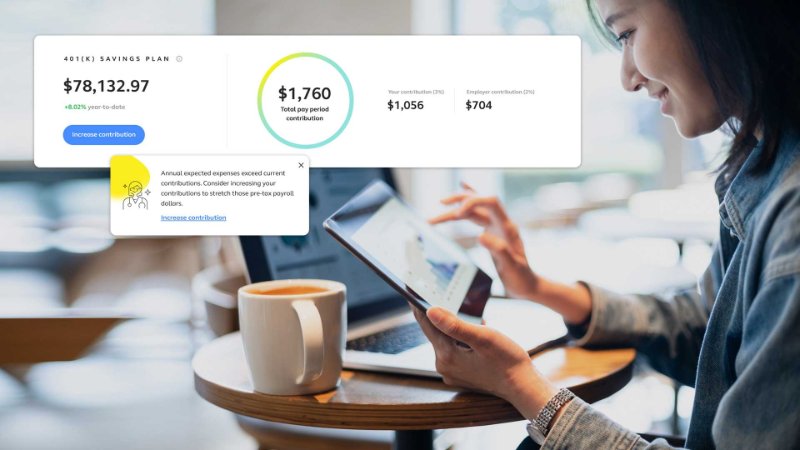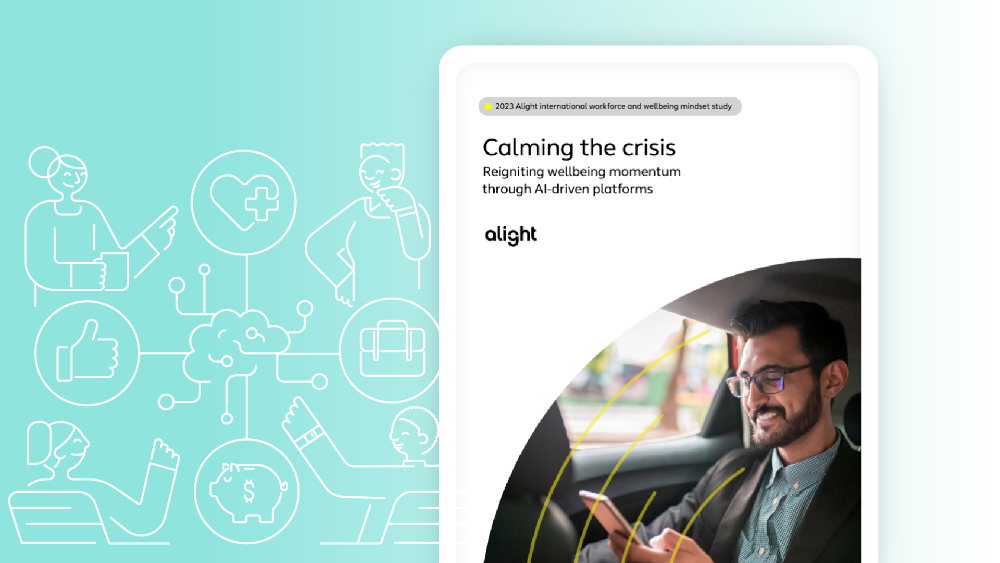
Today’s workforce is wonderfully diverse. This translates into a tremendous advantage in the form of varied perspectives, outlooks, communication styles and approaches to problem solving.
When it comes to support from their employer, employees' needs are just as diverse. Unfortunately, many employees feel unsupported. This came to the forefront during the COVID pandemic, when employers became painfully aware of the struggles employees face in their day-to-day lives.
It also became clear that no two employees have the exact same challenges or prioritize the same things. While one employee places the highest value on their physical health, someone else might be laser-focused on their finances, while yet another is trying to help a family member struggling with mental illness. Increasingly, they are expecting their employer to step up and provide tools, resources and guidance to help them live their best lives across all four pillars of wellbeing — mind, body, wallet and life.
Employers are doing just that — expanding their wellbeing offerings in both volume and scope. Often, however, these increased investments are not translating into a feeling of being supported among the workforce. Just 43% of employees say their company supports them with resources to better manage and improve their wellbeing, according to the 2023 Alight International Workforce and Wellbeing Mindset Study. Even more concerning, less than half (46%) feel their employer would have their back if they experienced a wellbeing challenge, and more than a quarter (27%) have lost trust in their employers’ wellbeing efforts. Perhaps most disheartening, only 41% of employees believe their company genuinely cares about their wellbeing. This disconnect should weigh heavily on the minds of all leaders.

2023 Alight International Workforce and Wellbeing Mindset Study
Understand current employee perceptions and optimize your employees’ wellbeing and experiences to improve engagement, productivity and performance.
A new path forward
When employees don’t feel their wellbeing needs are being met, engagement and productivity falter. Attrition begins to climb, as workers find themselves increasingly open to outside opportunities. In response, many organizations try to solve what they see as a coverage problem by building out their offerings with even more tools and content, hoping to meet all possible needs across the entire workforce. While these point solutions work well for some employees some of the time, they don’t even come close to meeting the needs of all employees all of the time. What’s more, this overabundance of offerings leads to information overload, causing employees to get frustrated and overwhelmed when they can’t readily find what they need.
Companies are burning time and money creating unnecessary complexity and waste without achieving their goals of driving equitable outcomes for employees and their families or producing concrete value for the business. Rather than attempting to manage more “Frankenstein integrations” or manual workarounds, leaders are increasingly recognizing the value of employing an integrated and personalized approach that combines artificial intelligence (AI) with high-touch navigation to support employees through complex decisions that directly impact their wellbeing.
Our Alight Worklife® platform, powered by the Alight LumenAI® engine, continuously analyzes employee interactions, creating a deep understanding of individual preferences and needs. Much like Amazon and Netflix provide helpful recommendations based on past usage, Alight Worklife delivers personalized notifications that nudge employees to take action at pivotal times, while also providing appropriate resources and guidance in the moments that matter. Employees are empowered to take control of their personal wellbeing through choices and flexible benefit offerings that meet their diverse needs.
This kind of 1:1 wellbeing support ensures that employees feel seen, cared for and connected to the organization. The result is a happier, healthier and more productive workforce. Meanwhile, the company realizes significant impact on important metrics like reduced healthcare costs and increased retention, while also receiving a boost to its perception as an employer of choice, a key differentiator in today's fierce labor market.

Alight Worklife®
Connect health, wealth, payroll and leaves in one place to cut complexities and empower your workforce with Alight Worklife’s integrated and AI-powered cloud platform.


